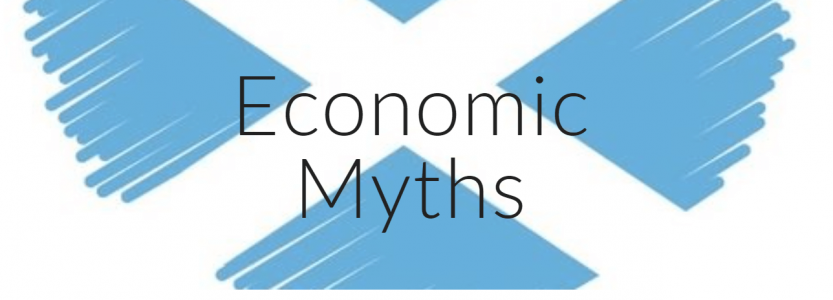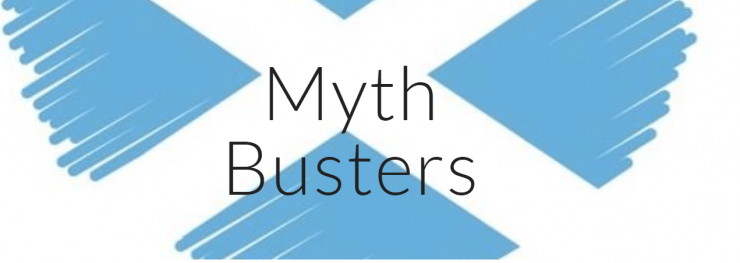
Some Basic Economic Misunderstandings
Three things to remember:
- The finances of a country which issues its own currency do not operate in the same way as those of households or businesses;
- A currency-issuing country does not run out of money, but does face some constraints;
- Much of our misunderstanding about money matters comes from using the wrong terminology.
1. Thatcher got it wrong
Ever since Thatcher's time we have been brainwashed into thinking that a country's finances work in the same way as those of a household or business. In 1983 she declared that “the state has no source of money, other than the money people earn themselves. If the state wishes to spend more it can only do so by borrowing your savings or by taxing you more. We know that there is no such thing as public money,” she added. “There is only taxpayer money.” She got it the wrong way round. Think of the game Monopoly. It cannot start until the bank has issued money to the players. Likewise the state issues money through its central bank so that we can all participate whether it is in buying the things we need or want(usually after earning it by doing a job), and in paying our taxes. So it is not taxpayers' money but it really is public money. BUT, please note, this only applies where the state issues its own money, not if you are a user like a household, a business, a local council or a devolved government. For Thatcher it was TABS, Tax & Borrow, then Spend. In reality it is STAB, Spend, then Tax and Borrow.
2. A currency issuing country cannot run out of money
This does not mean it can spend, spend, spend for there are two main constraints .
The first is that it limits what it does according to the country's available productive resources i.e. the quantity and quality of its land, its natural resources, its labour force, its manufacturing ability and its technological skill. If it goes on a spending spree beyond these limits inflation will result.
The second constraint is that it only borrows in its own money. If you borrow in someone else's currency not only do you deplete your reserves but you open yourself up to international currency speculators whose interests are unlikely to be the same as yours.
So, next time you hear a journalist ask the Chancellor, "How are you going to pay for it?" he/she is simply displaying their ignorance. How do you think Sunak has been able to finance the relief schemes introduced this year? He simply gets the BofE to issue the money. He may subsequently recoup some of it by taxing and borrowing, and almost certainly will, but he does not need to.
3. Misunderstandings regarding deficits and the National Debt
We are currently using the wrong terminology for terms such as Deficit and Debt.
A deficit occurs when you spend more than your income. For you and me that is not sustainable because we are currency users, not issuers. For a currency issuing government a deficit more often than not makes sense. Suppose our government issues £1m but collects only £900,000 in tax. It has a deficit but we, the public, must have a £100,000 surplus which we can spend and in doing so we stimulate the economy. That stimulus can also help the government because its VAT returns go up. If our government balances its books that extra spending money doesn't exist. If the government runs a surplus then it is taking money out of the economy, something which only makes sense if the economy is overheating and inflationary pressures need to be curbed. So all George Osborne's policy to create a surplus was unnecessary. The austerity which resulted was not required for financial reasons but was used for political reasons because the Tories wanted to reduce state spending and welfare and to redistribute to the rich.
It is said that with a deficit we will be leaving a burden on future generations saddling them with debt. Yet our time of biggest deficit was post WW2 but that did not stop Atlee's government achieving all they did and laying the foundations for rising standards of living which meant MacMillan could claim "we have never had it so good".
If anything, government debt is even more misunderstood.
Borrowing mainly refers to the fact that the government can raise money by selling bonds(gilts) or treasury bills. There is never any shortage of investors willing to buy them because they are one of the most secure investments around, plus they offer a bit of interest. Investors can be individuals but more likely they will be pension and life assurance funds, or foreign investors. When it comes to speaking about the national debt it is worth remembering the government as a currency issuer can always pay it off but has no intention of doing so, but that does not scare investors away. It is suggested that we should rename the national debt as national savings because it is mainly just like a savings account in a bank.
The National Debt (ND) is a very convenient bogey man for politicians and journalists to scare the horses and 'justify' stringent policies. Firstly, the total sum is difficult to pin down and often it is exaggerated for effect. The Office for National Statistics (ONS) is saying at present that the ND is over £2tr but they cannot explain several of the items which make up that figure. We do know that since 1945 c£1745bn has been borrowed by the UK of which £40bn has been repaid and none at all for the last 19 years. Interest on the debt is repaid which is why investors buy bonds.
As the government can issue money it could in theory pay off the ND tomorrow but there are good reasons why it will not do so. Try to think of it as savings and then this idea is not so difficult to comprehend. If you have savings with NS & I or premium bonds you own some of the ND. A much bigger amount is owned by life assurance and pension funds and so indirectly by you if have a private pension. Banks own gilts because their customers with accounts are guaranteed up to £85,000 if the bank goes bust. Foreign governments own some of the debt because these balances are essential for trade.

